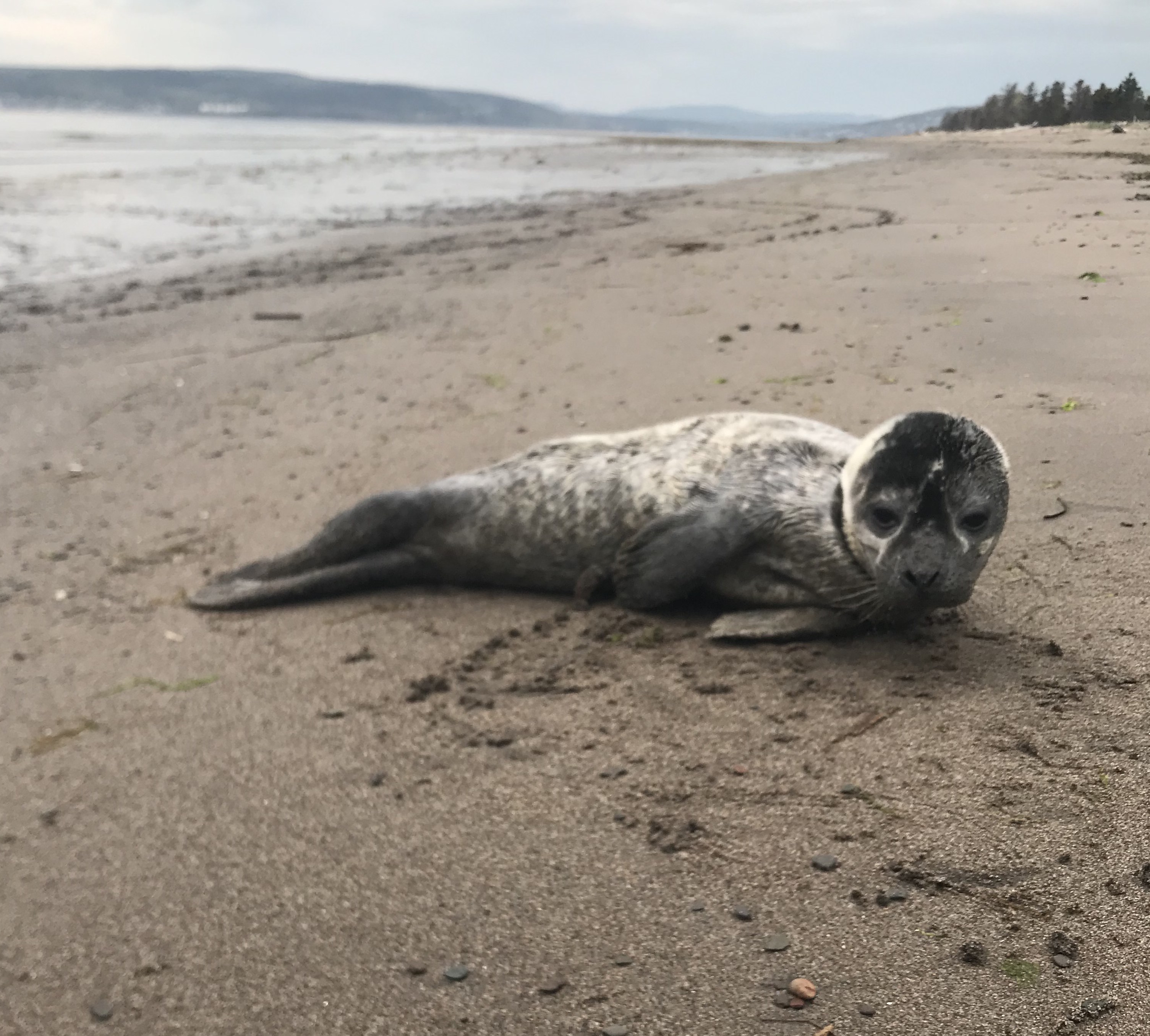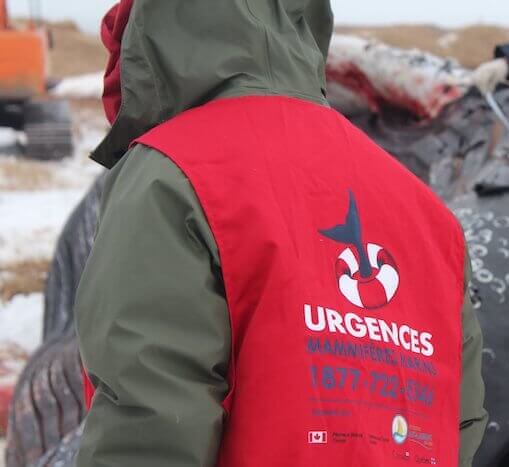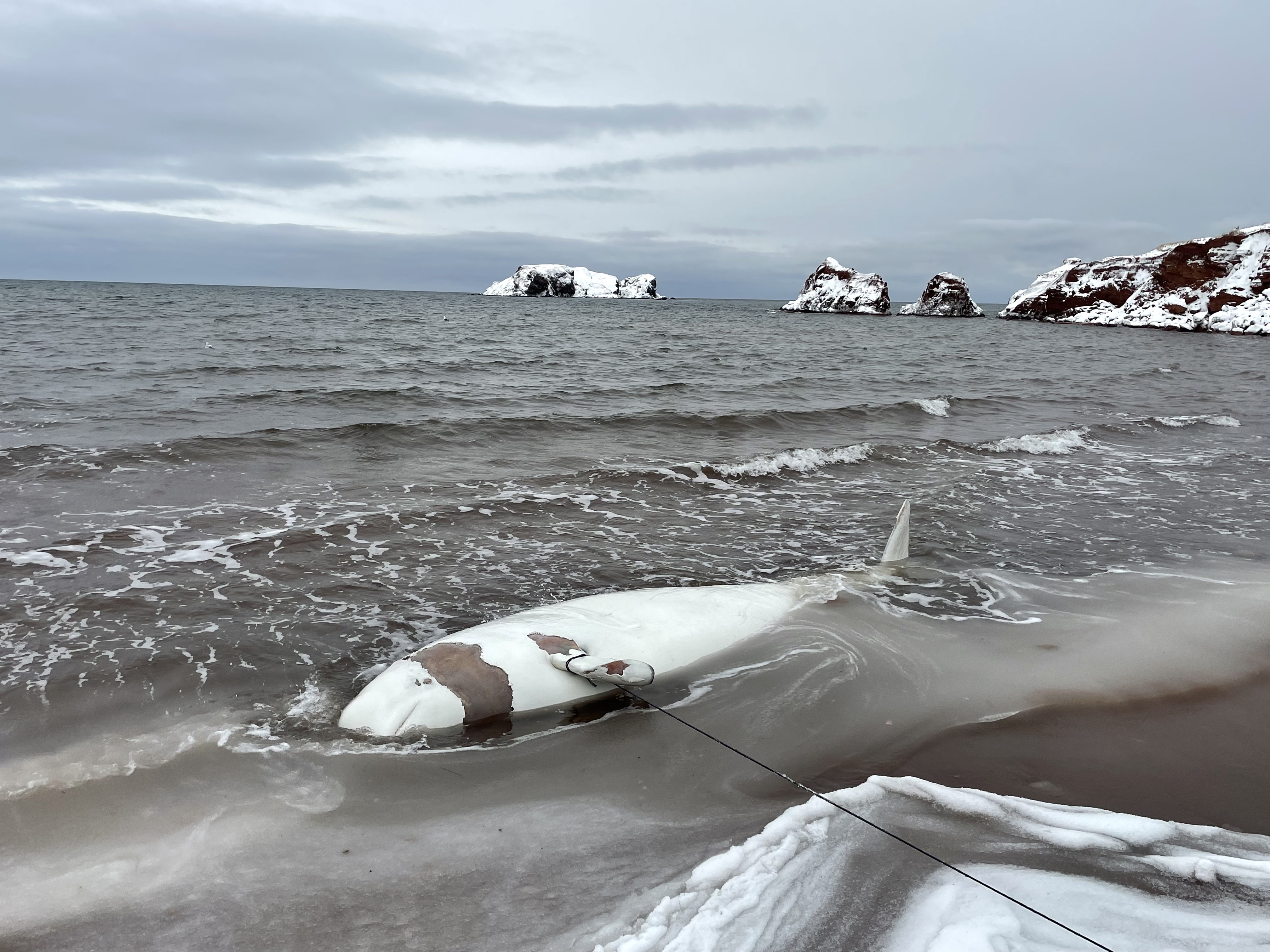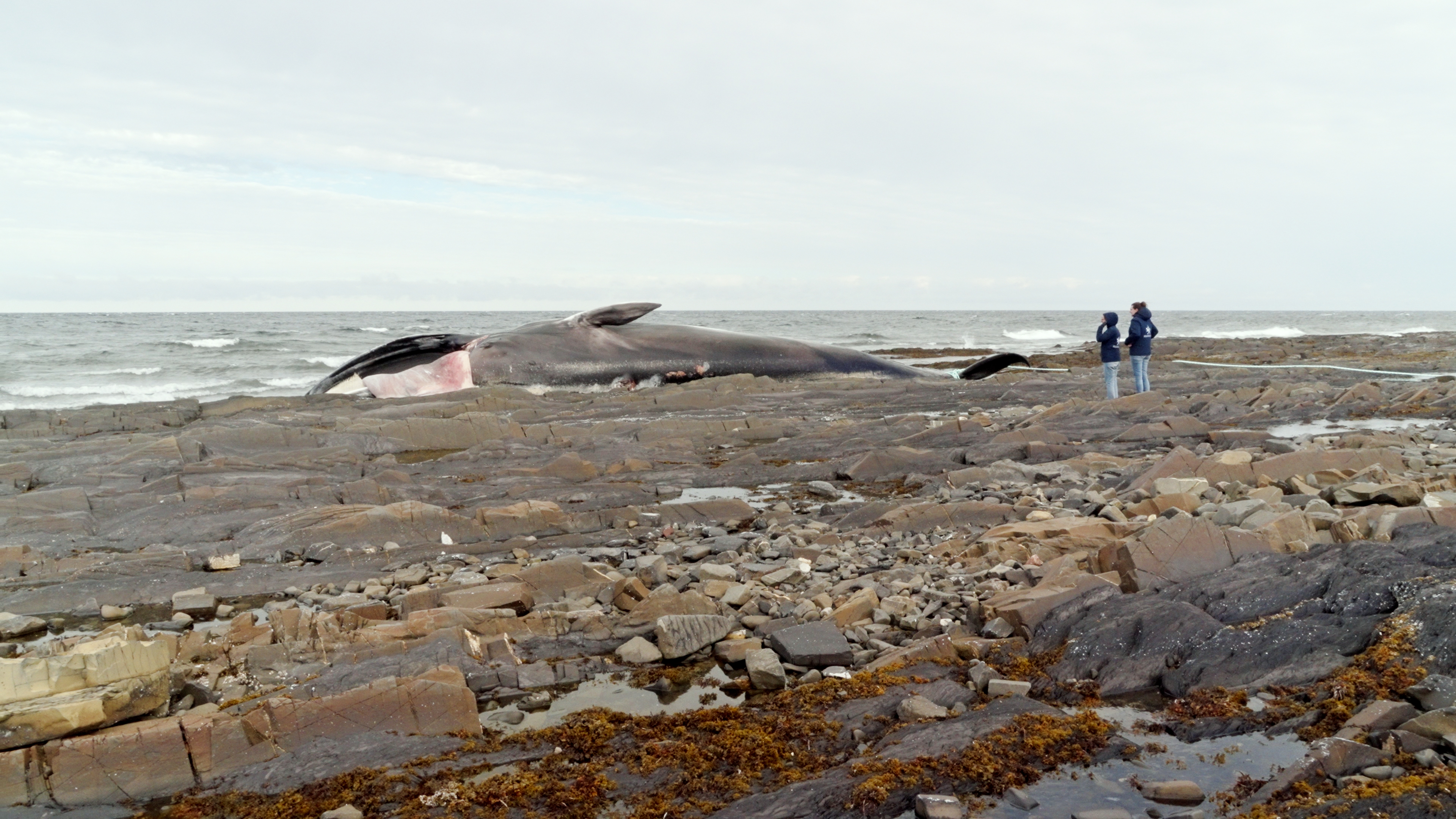In May and June, many residents will have the opportunity to observe young seals on the beaches, as it is now pupping season for harbour seals. But to ensure their survival, these observations must be made from a safe distance!
Every year, the Quebec Marine Mammal Emergency Response Network receives numerous reports of young seals alone on the beach. Though it may seem concerning that a newborn seal would be left to fend for itself, this is quite a normal situation. Indeed, in order to feed, a mother seal may leave her young for several hours or even days at a time.
So how should we protect them? By keeping our distance (at least 50 metres) and keeping pets on a leash. Above all, never touch a seal, as its mother may no longer recognize its scent and therefore abandon it. Human presence around a pup – the name given to young seals – can also frighten the mother, who will then be more reluctant to return to the beach to care for it.
Despite their small size and friendly appearance, young harbour seals can become aggressive if they feel threatened by humans standing too close. Their bites can cause serious injury or even transmit disease.
When should you call Marine Mammal Emergencies?
Seals’ lives are split between the water and the land, where they come to rest. It is therefore completely normal to observe a seal out of the water. Certain situations are problematic, however, and should be reported:
+ If you see a seal with obvious signs of injury;
+ If people are handling or attempting to interact with the seal;
+ If the seal is showing aggressive behaviour toward the public.
If this is the case, dial 1-877-722-5346. An officer will assess the situation by asking you questions about the location and physical appearance of the seal as well as the level of human traffic in the area. In the event that the seal appears to be in poor health, a veterinarian might assess the animal’s condition and decide whether or not an intervention is warranted.
If the animal is being harassed, meaning if people are approaching or touching it, the Quebec Marine Mammal Emergency Response Network will ensure that the public is made aware of how important it is to allow the seal to rest. The Network relies on nearly 200 volunteers across the province to properly document incidents and educate passers-by in order to better protect seals and whales.






